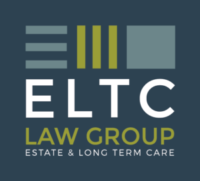The “do-it-yourself” approach has been cropping up all over social media in recent years, usually presented as hobbies and money-saving hacks. The fun side of DIY may look like hand-knitted scarves, homemade soaps, and upcycled clothing, but the other side is riddled with botched plumbing jobs and sketchy electrical work. In other words, there are some things you should never DIY—and estate planning is one of Read More
Medicaid Eligibility: 6 Important Things to Know
Medicaid has helped millions of seniors, people with disabilities, pregnant women, and children get the health care coverage they need. The program is jointly funded by the federal and state governments, designed to help financially eligible people get the medical and long-term care. Whether you need financial aid now, you're planning ahead for the future, or you're researching on behalf of a loved one, there are Read More
A Brief Guide to the Different Types of Powers of Attorney
If you're thinking about sprucing up your estate plan, you've probably given some thought to appointing power of attorney (POA). It essentially gives a trusted person (or “agent”) the legal authority to handle your affairs on your behalf. What is power of attorney, exactly, and what are some of the different forms it can take in the states of Washington and Idaho? First of all, you should know that powers of Read More
4 Key Planning Steps to Take When a Loved One is Diagnosed with Alzheimer’s
When a loved one is diagnosed with Alzheimer’s, you may naturally be preoccupied with his or her immediate needs. It can be difficult to think about estate and financial planning during this emotional time. Why start now? For one, it's important that you discuss your loved one's preferences while he or she is still able to communicate them effectively—while he or she still has the “legal capacity” to decide. It also Read More
Revocable vs. Irrevocable Trusts: Understanding the Key Differences
Trusts are exceptional estate planning tools that can be used to address a wide range of situations. They can help you save money, plan for your future, and protect your family from unnecessary stress and expense. Trusts generally let you transfer control of certain property and assets to a document that will essentially own them on your behalf. There are two main types, called revocable and irrevocable trusts. Your Read More
Don’t Shoot Yourself in the Foot: What Happens to Your Firearms If You Don’t Have a Gun Trust
You might consider your firearms to be part of the legacy you leave behind for your loved ones. If that's the case, you should make sure your estate plan includes a perfectly legal way to pass on those firearms after you're gone. You may intend to leave your surviving family with fond memories, but with the wrong approach, you could end up leaving them with a great deal of legal trouble. Gun trusts are typically Read More
6 Key Benefits of a Charitable Remainder Trust
Ever wondered how you can save money and give generously at the same time? A Charitable Remainder Trust (CRT) is an excellent way to contribute to your favorite charity while reducing your taxable income. A CRT is tax-exempt and irrevocable, which means the trust cannot be modified once it has been finalized. It involves donating your assets into the trust and having it generate income for a certain period of time, Read More
The Latest News & Information About Estate & Long Term Care Law Group
This Section Coming Soon Read More
Understanding the Difference Between Crisis and Non-Crisis Medicaid Planning
One of the most important parts of estate planning is preparing for the possibility of having to enter a long-term care facility. Depending on the needs you will have, these facilities can cost many thousands of dollars per month, which can quickly eat away at even very significant retirement savings. Many people believe that Medicaid will be there to cover the costs, but that is only true once most of your other Read More








